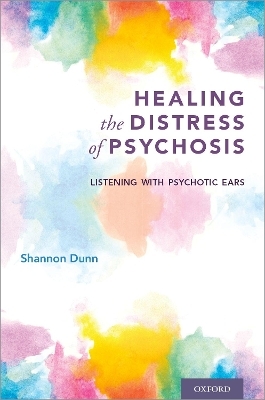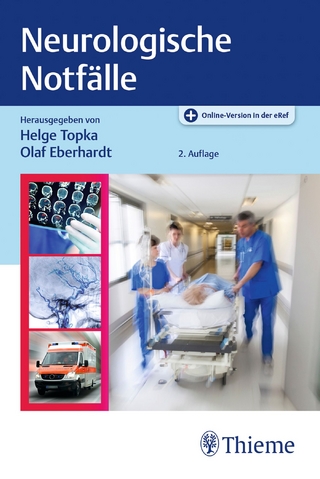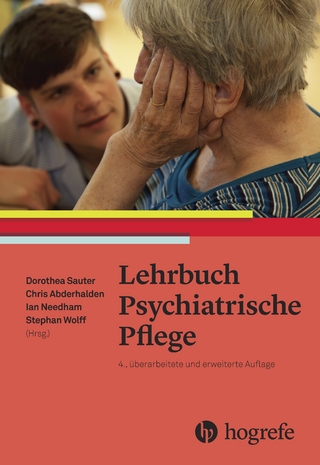
Healing the Distress of Psychosis
Oxford University Press Inc (Verlag)
978-0-19-085875-9 (ISBN)
Even among mental health clinicians, the communications of individuals experiencing psychosis have historically been considered mysterious, bizarre, and invalid. These judgmental, inaccurate interpretations and accusatory attitudes can cause iatrogenic trauma, a significant obstacle to recovery. Healing the Distress of Psychosis focuses on practice-based and evidence-informed interventions to effectively understand and communicate with people who are experiencing psychotic symptoms. The text thoughtfully describes: the experience of psychosis, as well as the unique intervention method of fostering the therapeutic relationship; and the psychotic thought process from neurological, linguistic, and existential-psychological perspectives. Mental health professionals, individuals with lived psychotic experiences, and their family members and loved ones will find this book to be a strong and accurate voice that highlights the past and present disappointments in mainstream public mental health treatment, while delivering hope in creating a secure, self-determined life.
Shannon Dunn, PhD, LCSW (CA & IL), CRADC, is Clinical Associate Professor of Social Work in the Suzanne Dworak-Peck School of Social Work at the University of Southern California.
Preface: Everything You Need to Know to Navigate This Book
Acknowledgments
Unit I: Traditional Treatment Approaches for Healing Psychosis
Chapter 1: Types of Psychosis and General Intervention Approaches
Chapter 2: Traumatized by "Treatment": Anthropological and Social Interactional Perspectives of the Person Who Lives with Psychosis
Chapter 3: Brief History of Iatrogenic Trauma from the Mainstream Mental Health Treatment System
Chapter 4: Evidence of Unethical and Ineffective Mainstream Mental Health Treatment
Chapter 5: Historically Ethical and Effective Mental Health Approaches for Healing the Distress of Psychotic Experiences
Summary of Unit I
Unit II: New Discoveries About the Causes and Healing Approaches of Psychosis
Chapter 6: The Relationship Between Early and Severe Trauma and Psychosis
Chapter 7: The Relationship Between Neurobiology and Psychosis
Summary of Unit II
Unit III: Ethical and Professional Obligations Impact Macro, Mezzo, and Micro Levels of Treatment Delivery
Chapter 8: Consumer/Psychiatric Survivor/Ex-Patient (C/S/X) Movement
Chapter 9: Existential and Spiritual Philosophy for Healing the Distress of Psychosis
Chapter 10: Listening with Psychotic Ears Philosophy and Clinical SkillsAppendix B: Chapter Resources
Chapter 11: Practice-Based Interventions for Engaging the Most Difficult/Impaired
Chapter 12: Survivor and Self-Care for Families and Clinicians Who Work with People Living with Symptoms of Mental Illness
Summary of Unit III
Unit IV: Where Do We Go from Here?
Chapter 13: Conclusions and Future Remarks
References
Appendix A: Related Associations
Appendix B: Website Resources by Chapter
| Erscheinungsdatum | 26.09.2018 |
|---|---|
| Verlagsort | New York |
| Sprache | englisch |
| Maße | 155 x 231 mm |
| Gewicht | 544 g |
| Themenwelt | Medizin / Pharmazie ► Gesundheitswesen |
| Pflege ► Fachpflege ► Neurologie / Psychiatrie | |
| Sozialwissenschaften ► Pädagogik ► Sozialpädagogik | |
| Sozialwissenschaften ► Soziologie ► Spezielle Soziologien | |
| ISBN-10 | 0-19-085875-3 / 0190858753 |
| ISBN-13 | 978-0-19-085875-9 / 9780190858759 |
| Zustand | Neuware |
| Informationen gemäß Produktsicherheitsverordnung (GPSR) | |
| Haben Sie eine Frage zum Produkt? |
aus dem Bereich


